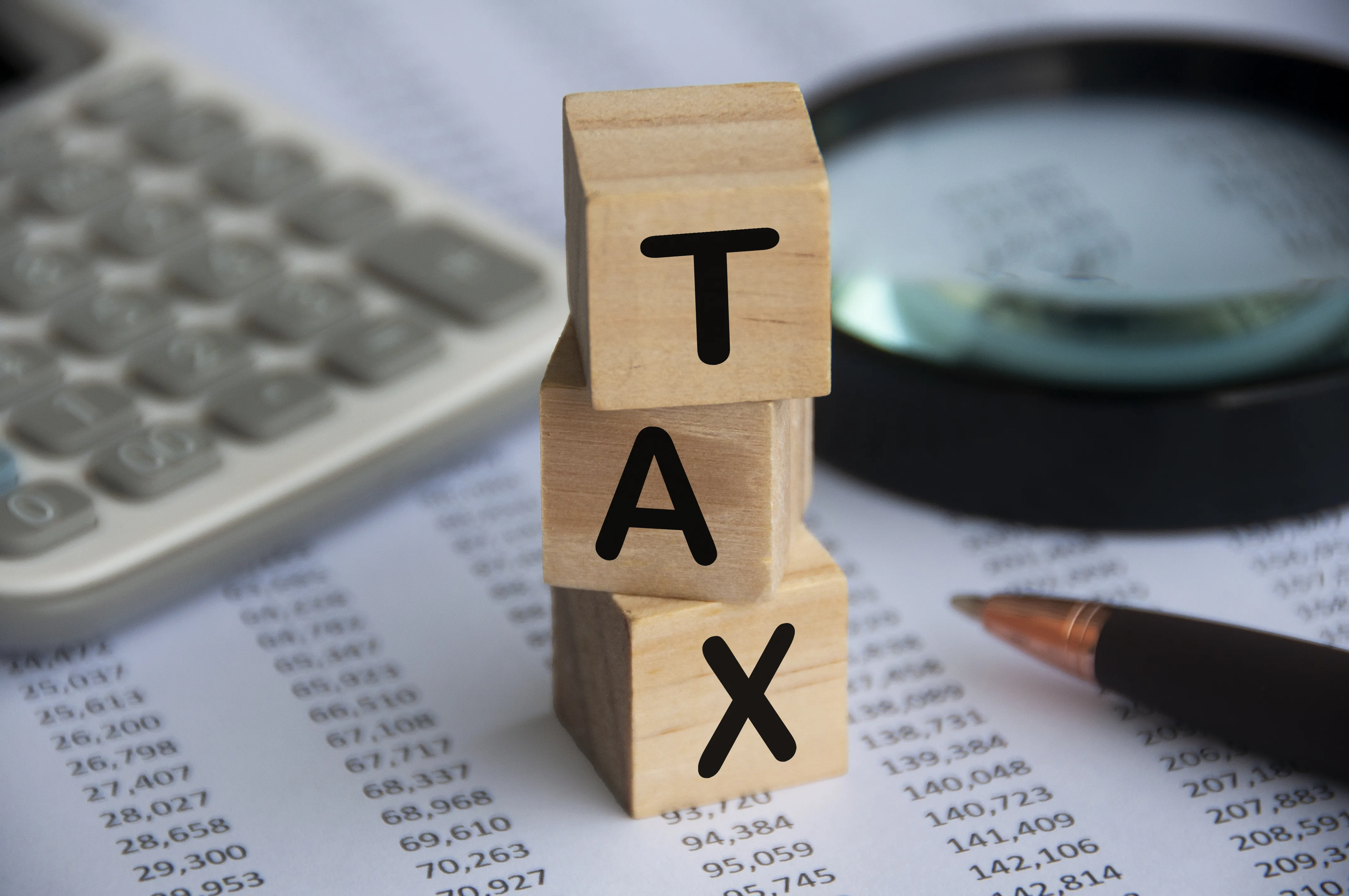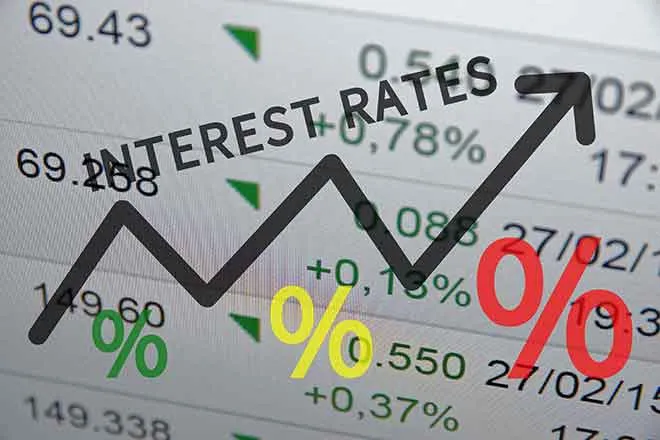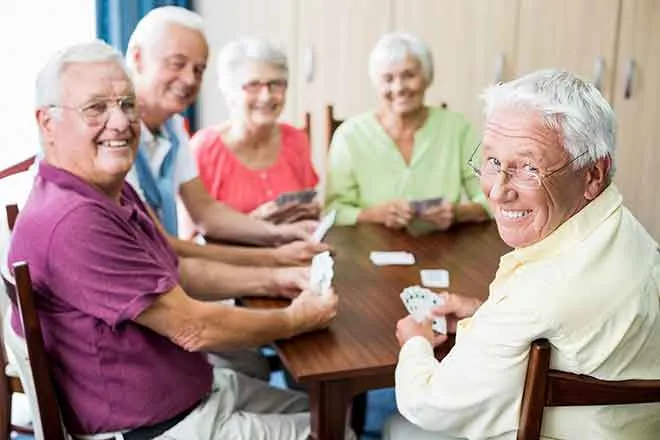
Curious Kids: Why is my poop brown?
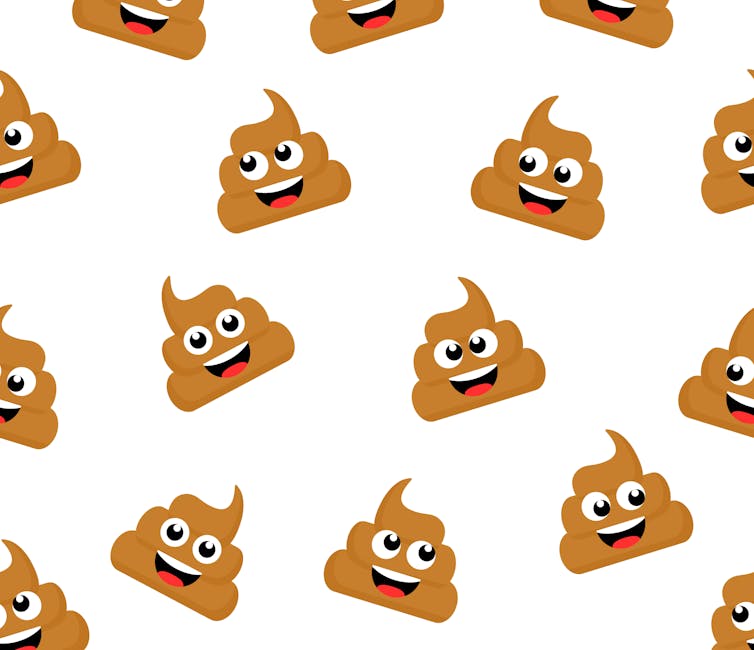
Hannibal Person, University of Washington

Curious Kids is a series for children of all ages. If you have a question you’d like an expert to answer, send it to curiouskidsus@theconversation.com.
Why is my poop brown? – Ethan J., age 9, Potomac, Maryland
Three-quarters of your poop consists of water and most of the rest is food your body didn’t digest.
Once it exits the digestive system, poop is usually a shade of brown, regardless of the appearance of whatever you’ve had to eat and drink, because it contains a chemical your body makes.
That chemical, stercobilin, is a product of the breakdown of hemoglobin – an iron-containing protein in red blood cells that allows oxygen to be transported around the body. Without sercobilin, your poop would probably look pale or even white. That’s because most of the chemicals that give food many different colors are completely broken down in the digestive process.
Red blood cells live for only around 120 days before they are eventually replaced. As the hemoglobin they contain breaks down, a yellow protein called bilirubin gets produced.
Bilirubin eventually makes its way to the liver through the circulatory system and is modified and then secreted into the small intestine by the liver in the form of bile. Bile, a yellow-green fluid, helps your body digest and absorb fats. While your body does absorb and reuse some bilirubin as the food you’re digesting moves through the small intestine, the rest of that bilirubin becomes stercobilin – which your body must dispose of.
And that stercobilin gets combined with the stuff you’re digesting, making your poop brown by the time it exits your body.
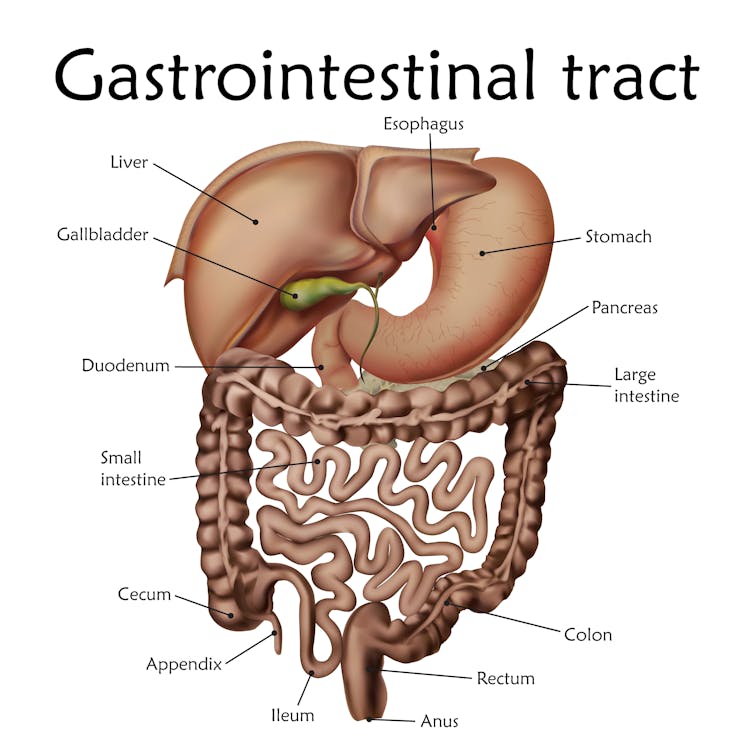
Other colors
Poop, of course, isn’t always brown. It can be a different color, depending on what you eat and how fast the stuff moves through your system.
I’m a doctor who regularly treats children with digestive problems. Some of them have diarrhea – that is, liquid poop. It can be green or yellow because it contains a lot of bile.
When poop moves too quickly through your body, the bilirubin in the bile does not have enough time to be broken down to form stercobilin, which would make it browner.
If you eat a lot of something, especially if it’s hard for your body to quickly digest, your poop may look funny. For some people, eating beets leads to red poop or reddish urine.
Your body can’t possibly absorb everything that you eat and drink. Some foods, like corn kernels, can’t be fully digested by people. They may even come out in poop looking the same size and color as when you ate them.
Even though it may seem gross, I recommend that you regularly peek at your poop before flushing to make sure it’s brown and squishy. If most of it is an unusual color, such as black or white, it could be a sign you need to see a doctor. The same goes for having poop that is too hard or too runny. If your poop is red and you haven’t been eating beets, that might also be cause for concern.
Hello, curious kids! Do you have a question you’d like an expert to answer? Ask an adult to send your question to CuriousKidsUS@theconversation.com. Please tell us your name, age and the city where you live.
And since curiosity has no age limit – adults, let us know what you’re wondering, too. We won’t be able to answer every question, but we will do our best.![]()
Hannibal Person, Assistant Professor of Gastroenterology and Hepatology, School of Medicine, University of Washington
This article is republished from The Conversation under a Creative Commons license. Read the original article.


